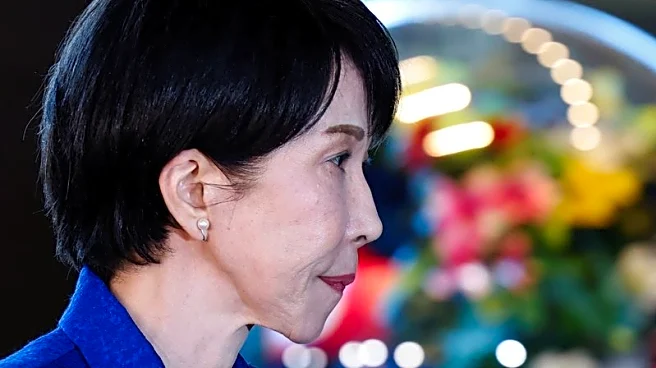Rapid Read • 8 min read
The International Monetary Fund (IMF) is an intergovernmental financial institution established in 1944, headquartered in Washington, D.C., with 191 member countries. Its mission is to promote global economic growth, financial stability, and international trade while reducing poverty. The IMF provides loans, advice, and support to countries facing financial difficulties, requiring policy changes as part of loan agreements. The organization monitors global economic trends and publishes reports such as the World Economic Outlook and Global Financial Stability Report. The IMF's activities include surveillance, capacity building, and lending, with funds contributed by member countries based on their economic size.
AD
The IMF plays a crucial role in maintaining global financial stability, which is essential for sustainable economic growth and rising living standards worldwide. By providing financial assistance and policy advice, the IMF helps countries avoid and recover from economic crises, thereby reducing poverty and fostering international trade. The organization's influence is significant, as it shapes economic policies and reforms in member countries, impacting global trade and economic development. However, its structural adjustment programs have faced criticism for potentially exacerbating poverty and perpetuating colonialist structures.
The IMF continues to adapt its strategies to address emerging global economic challenges, such as shifts in major policy frameworks and the evolving landscape of international trade. The organization is expected to enhance its surveillance and capacity-building efforts to better support member countries in achieving economic stability and growth. As global economic conditions change, the IMF's role in facilitating international cooperation and financial stability will remain vital, with ongoing discussions among its member countries about the implications of their policies.
The IMF's work extends beyond immediate financial assistance, influencing long-term economic policies and structures in member countries. Its focus on capacity building and technical assistance aims to strengthen national institutions and expertise, promoting sustainable economic development. The organization's efforts to foster global monetary cooperation and secure financial stability have ethical and cultural dimensions, as they impact the sovereignty and economic independence of nations. The IMF's role in shaping global economic governance continues to evolve, reflecting broader shifts in international relations and economic power dynamics.
AD
More Stories You Might Enjoy












